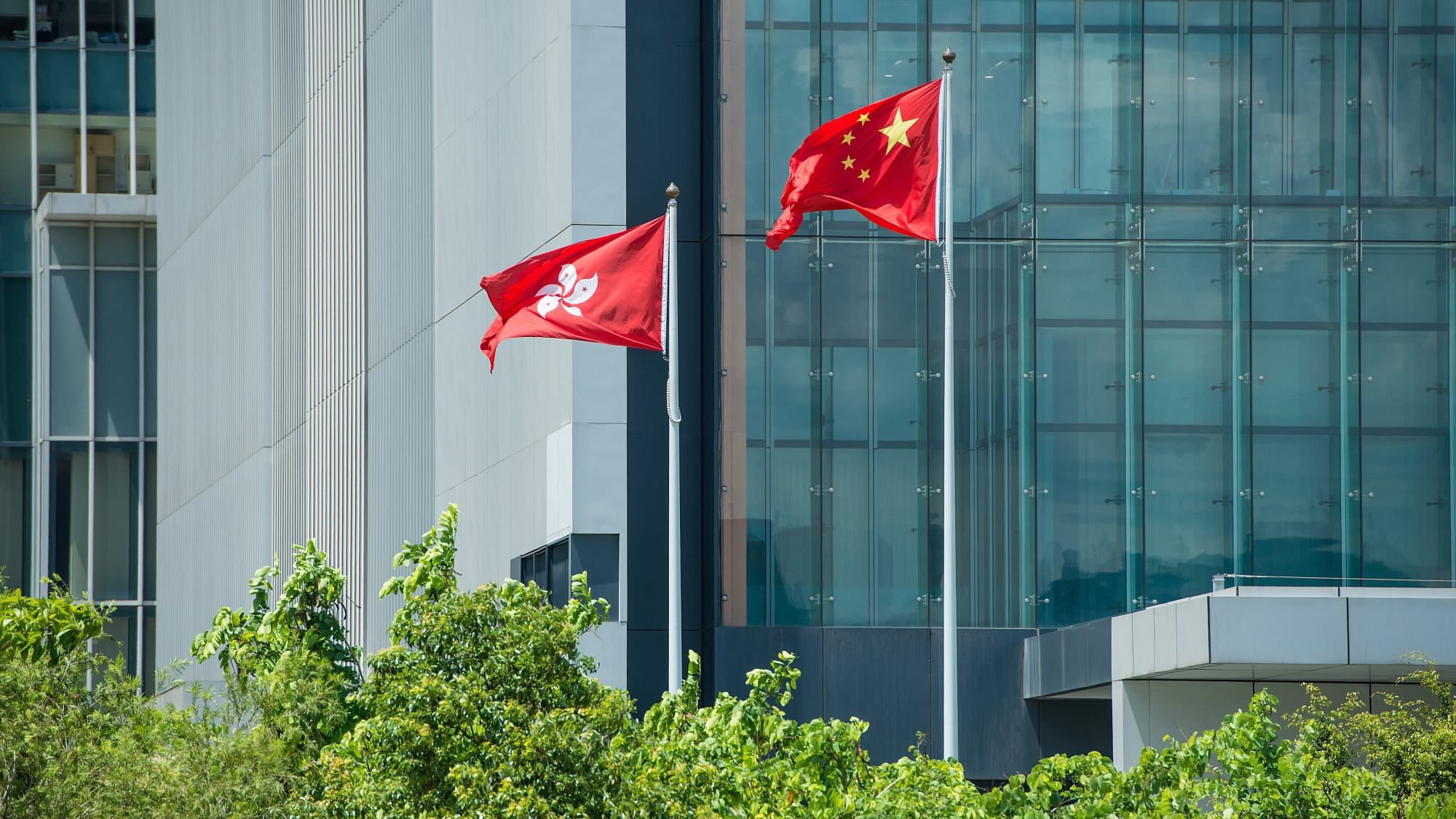In response to claims on a social media platform that "the fact that dual universal suffrage has yet to be implemented in Hong Kong is a serious violation of the Sino-British Joint Declaration," the government of China's Hong Kong Special Administrative Region (HKSAR) clarified on Thursday that the Sino-British Joint Declaration does not have any paragraph which sets out the implementation of "dual universal suffrage."

Photo: VCG
Paragraph 3(4) of the Sino-British Joint Declaration stipulates that "the chief executive (of the HKSAR) will be appointed by the Central People's Government on the basis of the results of elections or consultations to be held locally." Annex I of the joint declaration stipulates that "the legislature of the Hong Kong Special Administrative Region shall be constituted by elections."
The attempt of the opposition to urge “dual universal suffrage” by invoking the Sino-British Joint Declaration not only fabricates evidence but also makes stupid mistakes and cognitive errors.
First of all, with the return of Hong Kong to China and the end of the transitional period, the rights and obligations stipulated by the Joint Declaration in relation to the UK have all been fulfilled. The basic principles and policies of the Chinese government towards Hong Kong as set out in Paragraph 3 of the Joint Declaration, and related statements in the Annex have been fully incorporated into the Basic Law and have been put into practice. The Constitution of the People's Republic of China and the Hong Kong Basic Law serve as the legal basis of the Chinese government's governance in Hong Kong. To be brief, the UK has no sovereignty, jurisdiction or right of "supervision" over Hong Kong affairs.
Moreover, seeking so-called “democracy” from external forces by citing the Joint Declaration goes in the opposite direction and talks to the wrong person. Before Hong Kong’s return to China, the governors of Hong Kong were appointed by the British monarch. Back then, there was no democracy in Hong Kong at all. The democratic system was established and carried forward after its return to China. The Basic Law provides specific and clear provisions for the development of democracy in Hong Kong after its return and sets dual universal suffrage as the ultimate aim.
With support from the central government, the HKSAR government has steadily and rapidly advanced the democratic process in accordance with the Basic Law and the relevant interpretation and decisions of the Standing Committee of the National People's Congress.
It is fairly self-explanatory who really cares about the democratic process in Hong Kong and who really acts for Hong Kong's own good.
We believe facts speak louder than words, but are also concerned that “If you tell a lie big enough and keep repeating it, people will eventually come to believe it.”
Since the anti-extradition bill protests broken out in Hong Kong, radical protesters and opposition parties in the city constantly spread misconceptions and rumors, provoked conflict between the police and citizens, created social opposition and escalated violence in an attempt to mess up Hong Kong.
At the same time, external forces also meddled in Hong Kong affairs, trying to package the Joint Declaration, a historical paper, into a "permanent and effective document", thereby interfering in the governance of Hong Kong and exercising its wishful right of "supervision" over Hong Kong affairs.
To avoid the success of such attempts, it is necessary for the people of Hong Kong to remove the scales from their eyes and take a combination of measures to reveal the truth.
Hong Kong is an international city, yet due to its complicated history and external interference that still exists, it is essential for Hong Kong to maintain its commitment to development under the political framework established by the Constitution and the Basic Law. This is the one and only way for Hong Kong to establish a democratic system in line with its situation and to function properly.
(Compiled by Zhang Tong, Yang Yang)


